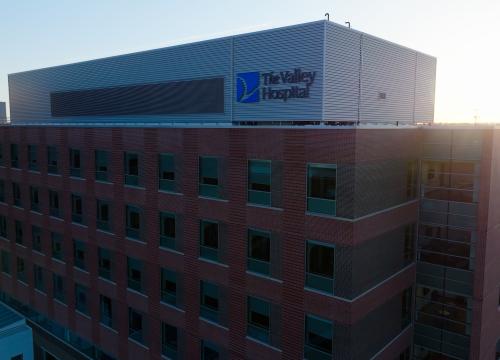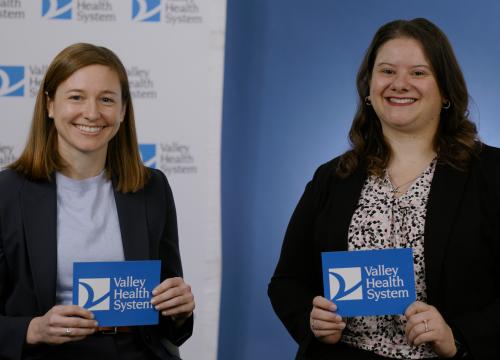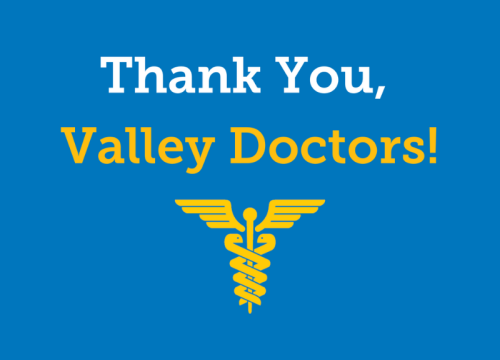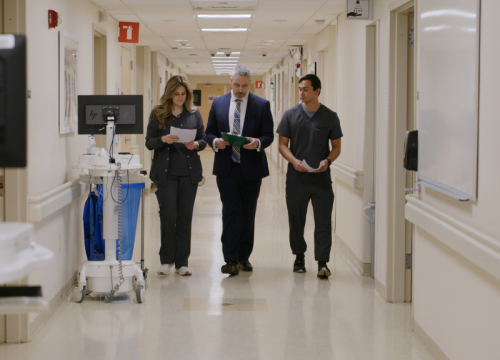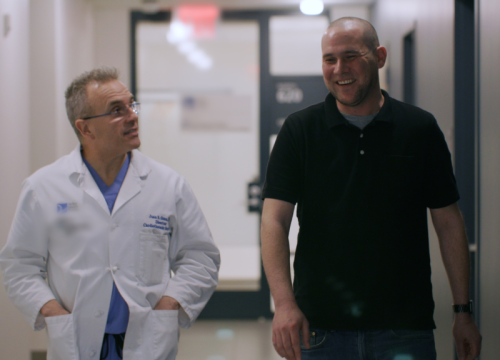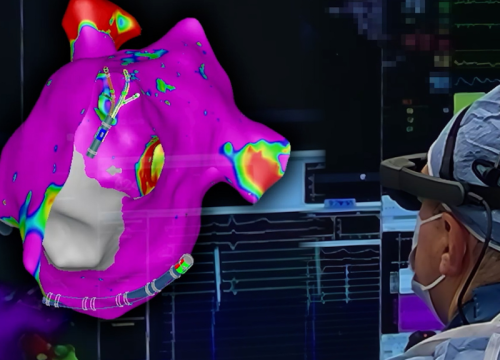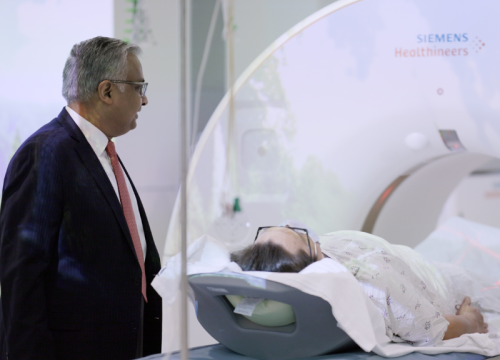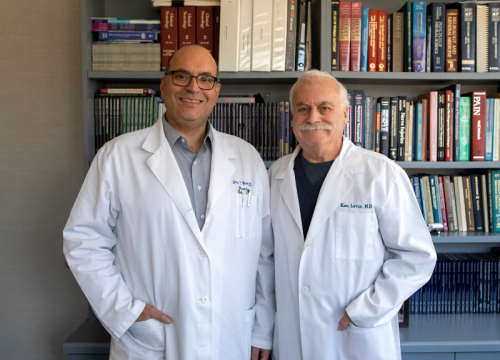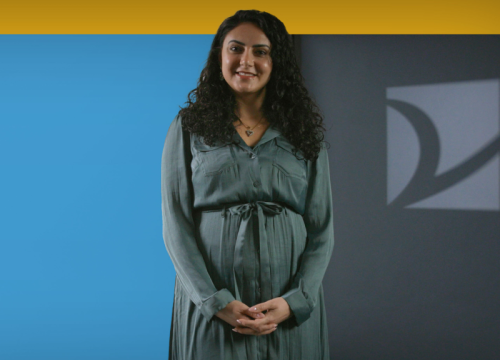Congratulations on your pregnancy! With the excitement for you and your family comes all the normal worries about whether your baby will be born healthy.
Fortunately, most babies are born without a major birth defect or genetic problem. Even so, it is natural to want to seek information on the health of your pregnancy.
This page outlines some of the prenatal tests you may have at Valley. Tests are performed at Valley’s Center for Maternal-Fetal Medicine.
Blood Screening Tests
- Blood screening tests can give parents information regarding the risk of having a baby with a birth defect or a chromosomal abnormality such as Down syndrome.
- Traditionally, these screening tests have been offered in the second trimester, between 15 and 20 weeks of pregnancy.
- The results are available about a week after the test is taken.
- These tests do not determine whether the baby has a problem or not, but rather whether the risk of having a problem is higher than normal.
Amniocentesis and Chorionic Villus Sampling
- For a definite prenatal diagnosis of Down syndrome, you would need to have diagnostic tests, such as amniocentesis or chorionic villus sampling (CVS).
- While these are more definitive, they carry a slight risk of complications, including miscarriage, since they are invasive procedures.
First Trimester Screening With Nuchal Translucency
- The Valley Hospital offers a first-trimester screen that combines a maternal blood screening test with an ultrasound evaluation of the fetus.
- The noninvasive procedure identifies risk for specific chromosomal abnormalities, including Down syndrome and Trisomy 18.
- The screening test is performed at 11 to 14 weeks of pregnancy to determine the gestational age of the fetus.
- The screening test also measures the amount of fluid accumulation behind the fetus’s neck, called nuchal translucency.
- The blood is analyzed for two proteins called free Beta hCG and PAPP-A that are normally found in the blood of pregnant women.
- The screen can detect approximately 90 percent of pregnancies at risk for Down syndrome and Trisomy 18.
Before performing the nuchal translucency, genetic counseling is offered to educate the patient about the test, and inform her of additional screening and diagnostic tests that are available.
If the results of the screening test raise concern, Valley’s Maternal-Fetal Medicine specialists and genetic counselors are available to provide explanation. If needed, they can perform additional testing, such as amniocentesis or CVS.
Genetic Counseling
Valley’s genetic counselors are available early in your pregnancy if you would like to discuss your options for birth defect screening in detail. They can help you make decisions about which test or tests are best for you.



